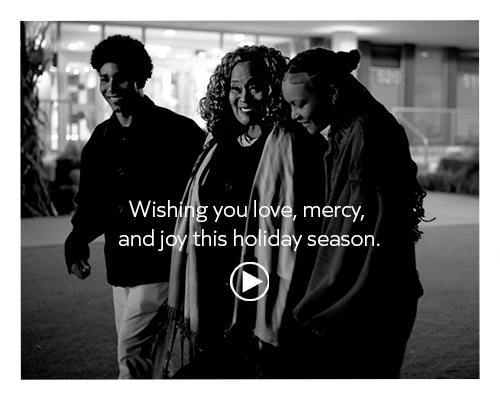SAFE Campus
Project SAFE
Project SAFE is a Carlow University effort, funded by the Office on Violence Against Women at the Department of Justice, to enhance prevention of and responses to domestic and sexual violence across the community. It is grounded in the belief that everyone on campus can be an ally in the fight against gender-based violence, and we are calling upon all community members to become involved in working on these issues.
Our efforts include:
- Resources (on & off campus)
- Prevention programming
- Peer Education Program
- Training & Events

Connecting to Resources
We connect students, faculty and staff who experience gender-based violence to confidential resources on and off campus, improve onsite services, and educate the Carlow community on resources. Project SAFE partners with Pittsburgh Action Against Rape, Women’s Center and Shelter, UPMC Gender Clinic, and the Health and Counseling Services at Carlow, which also works to improve onsite services for survivors and promote community resources.
- Pittsburgh Action Against Rape (Pittsburgh-based support services relating to sexual violence): +1 (866) 363-7273
- RAINN (Rape, Abuse & Incest National Network, national support services on sexual violence): +1 (800) 656-4673
- Women’s Center & Shelter (Pittsburgh-based support for domestic violence): +1 (412) 867-8005 (24-hour hotline), Text support (9 a.m.-9 p.m.): +1 (412) 744-8445
- Resolve Crisis Services: +1 (888) 796-8226
Prevention Programming
Our prevention programming works to set norms on campus that gender-based violence is not acceptable. It promotes a climate where all community members play a role in disrupting behaviors that promote sexism and homophobia that can lead to such violence.
Our curricula includes: Bystander intervention, healthy relationships & conversations on consent
Peer Education Program
Peer Educators for Project SAFE co-facilitate trainings, develop materials to educate the community, run social media campaigns and connect students to resources.
Peer educators
- Caitlin Hoag, Respiratory Therapy major, ’22
- KJ Miller, Creative Writing & Liberal Studies major, ’21
- Cameron Blackwood, Biology major, ’21
- Taylor Cosalter, Early Childhood Education major, ’22
“I did not have the resources available to me when I needed them. I often say that my relationships would have turned out much differently if I had known the signs and red flags to look out for and I could have saved myself and others the pain I had gone through. I really want to help other students be able to have access to the resources they need to accomplish whatever they see fit, be it working through trauma or taking steps toward legal action. Students are not alone at Carlow.” — Taylor Cosalter
Training & Events
We train campus police and student conduct personnel on the understanding of dynamics and impact of domestic and sexual violence as well as best practices in responding to survivors. We strive to ensure that responses to domestic and sexual violence are trauma-informed and culturally responsive.
All community events and staff trainings promote an intersectional perspective, highlighting that gender-based violence occurs in all communities, but that one’s race, sexual orientation, gender identity, nationality, and disability can impact one’s experience with violence and response from service providers. In sensitizing community members to this intersectional analysis, we are working toward culturally responsive services and creating on-campus support.
During Spring 2021, we ensured police received 20.5 hours of training on domestic and sexual violence. Additionally, we provided Student Affairs, Student Conduct Personnel, and Human Resources on dynamics of sexual and domestic and sexual violence and trauma-informed responses.
Additionally, we held the following community events:
- UJIMA: Responding to Black Survivors of Domestic, Sexual & Systemic Violence
- Commerical Sexual Exploitation
- Transgender & Nonbinary Cultural Competency
- Storytelling as Healing
- Sexual Assault Awareness Month Series
Director Contact Information
Jenna Bosi
Francis Ward Hall 307
412-578-6081
jmbosi@carlow.edu
Coordinated Community Response Team (CCRT)
Carlow’s CCRT is a diverse alliance of community members assembled to prevent sexual assault, dating and domestic violence and stalking (SADDVS) across the Carlow Community and promote healthy relationships. This team coordinates all prevention and intervention efforts; facilitates communication between key campus departments and community partners; ensures messages across efforts are consistent and reinforced; and ensures Carlow’s response to victims is seamless, consistent, and supportive.
▸ Read our values [pdf]
We strive to institutionalize policies, practices, and programming that:
- Proactively and comprehensively address SADDVS
- Respond to needs identified in the community
- Prioritize Transparency and Communication
- Engage the entire campus community as allies
- Are sensitive to the diverse needs of students and promotes inclusion
- Ensure fair and compassionate processes
- Support a campus culture where violence is not tolerated
Members
Our CCRT includes internal and external partners. Internal partners include:
- Social Justice Institute
- Office of Diversity and Inclusion
- Health and Counseling
- Wellness and Fitness
- Athletics
- Carlow Police
- Student Affairs
- Atkins Center for Ethics
- Nursing & Social Work Faculty
External partners include: Allegheny County DA’s Office, Pittsburgh Action Against Rape (PAAR) and Women’s Center and Shelter.
Contact Project SAFE
412-578-6081
jmbosi@carlow.edu
safe@carlow.edu
Follow us on Instagram & Twitter: @CarlowSAFE
Disclaimer: This project was supported by Grant No. 2019-WA-AX-0011 awarded by the Office on Violence Against Women, US Department of Justice. The opinions, findings, conclusions, recommendations expressed in this publication/program/exhibition are those of the author(s) and do not necessarily reflect the views of the Department of Justice, Office on Violence Against Women.

